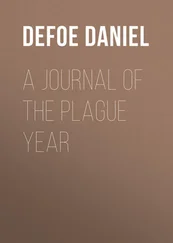Rieux could only admit afterward to his cruelty. He had taken a dislike to Parsons after the speech he gave following the riots. To Rieux, his remarks had been divisive. By claiming that the disease had somehow enacted karmic payback on the rich, he was saying that some people deserved to die. By contrast, the mayor’s own downfall, the consequence of a poor personal decision, he’d attributed to a rare psychological phenomenon, which allowed him to sidestep blame.
The mayor, Rieux believed, had also invoked the history of smallpox in the region gratuitously. He had invoked au courant ideology to explain an unprecedented event because he wanted to blame the affluent ones for their disease instead of considering its randomness. (The authors of this chronicle do not necessarily agree with Rieux’s interpretation of the mayor’s intent.) The doctor had somewhat blunted himself from feeling, but he knew about the types of suffering that hobbled bystanders. And he felt a pain dig into his own side whenever he stopped working; it opened its mouth and spat misery. He knew what he was doing to Parsons.
Rieux led the mayor down a corridor of partitions. The ward resembled a tent city—or a peculiar art class. Each partition contained another student artist’s slightly different take on the same scene.
Tucked away in one room were ten hospital beds set aside for infected children. There was extra room for parents. Some slept on mats beside their child’s bed. Rieux and Parsons reached the bed of a four-year-old girl. Her parents sat slumped over in chairs on opposite sides of the bed. The mother slept soundly. The father, who looked like he was tasting something bitter as he slept, briefly stirred and opened his eyes at the sound of his child’s whimpering. He closed them again.
“She was brought in twenty-four hours ago by her mother,” Rieux said quietly. “Her father came in shortly afterward. She has not responded to treatment.”
The doctor pulled over an empty chair from another partition. “If you want to understand what’s going on in this city that you lead, I want you to stay in this seat until it’s over,” he instructed the mayor. “If you still think you want to volunteer after this, then we will be pleased to take you on.” Rieux did not tell Parsons that he was the only volunteer who had to undergo this test.
The doctor had witnessed the deaths of children since he began work in the auxiliary hospital. He mentioned this facet of his job only once to his friends, saying it was the most difficult part. But Rieux minimized his own distress by de-particularizing those deaths, slotting them into a category—“the worst ones,” the patients who were the most “emotionally taxing.” He used those words as stoppers for his bottled emotions.
Last year, he’d reread parts of The Brothers Karamazov. He didn’t have the energy to go through the whole book, which he’d first consumed one vacant winter as an undergrad. Now he summoned his own memory of the Grand Inquisitor section, just before Ivan’s allegorical tale in conversation with his sensitive brother Alyosha. Ivan insisted something to the effect that he could not accept the harmony of God and the universe if it included the torture of children. What remained in Rieux’s mind was that he did not go so far as to deny God by insisting on disharmony. Rieux himself didn’t want to accept pointlessness—and the ensuing pursuit of gratified appetites—because of a child’s pain.
The authors of this piece (who shall be revealed soon) have, up until now, refrained from describing the deaths of children. They were not consequential to the stories of the figures we’ve followed. We are aware that the suffering of children can be acutely difficult and may prompt, among readers of this history, their own troubling memories. For some parents it might incite a painful consideration of their own worst fears.
We feel that the following episode merited inclusion. We are aware that the suffering can’t be entirely glossed over. We agonized over how best to describe this material. One of the authors suggested leaving a blank page in place of an account, which another dismissed as a “trite gimmick.” We decided, in the end, to neither dwell on nor gloss over this child’s death.
We therefore kindly invite those who might feel most sensitively about this material to either skip the remainder of this chapter or read it at arm’s length.

The mayor agreed not to leave his place at the foot of the girl’s bed until she died. He made a call to his assistant to clear his schedule and then turned off his phone.
The little girl had roused herself awake. Her arms were folded across her chest, one hand over a fist. She started shaking wildly. Rieux held the child down by the arms while he hushed her. He and Parsons heard a clunk as something rolled onto the floor. Parsons reached down and picked up a metal yo-yo. He rolled the thread back into the axle.
First the father, then the mother stood as the child continued to convulse. They were surprised to see Parsons with them but accepted his explanation. He realized that the mother and father were on opposite sides of the bed intentionally. Neither of them spoke to Rieux. When he’d offered his prognosis, they looked at him as if they’d been slapped.
The child did not seem calmed by the presence of her parents. She did not seem aware of them. Her eyes did figure eights in the chalky light. Then she shut her eyes, relaxed her arms, and fell into an agitated half-sleep. Her jaw remained clenched, and she periodically grimaced.
Both of Rose’s parents understood that their child was gravely ill, that she was likely to perish. They had fallen into a trance of pre-mourning and panic—a state that many Vancouverites experienced in those days. The child’s calmer state briefly snapped them out of that condition.
“What have you been doing for the last couple of months?” the mother, Lisa Randall-Oishi, asked Parsons during one of these lulls.
“I was still working but not in public,” he said. “There was personal stuff too. I had to move.”
“Are you in a hotel?” Jeffrey Oishi asked.
“The townhouse version of a sad bachelor apartment,” he said. “The assistant city manager loaned it to me. She’s living with her boyfriend. It forced him to commit”
This was perhaps the only moment of levity that day.
Rieux left Parsons for a couple of hours as he attended to other patients. When he returned, Parsons was alone with the child, holding her hand as she tossed her head from side to side on the pillow. Her parents had gone for dinner during a lull, but a new wave of fever was striking her. Her mouth opened as though she wanted to swallow something in front of her. Then it moved as though she wanted to speak, but no sound came. She gritted her teeth again and her body stiffened. She threw her arms and legs out like she was fighting a phantom.
The mayor looked to Rieux in disbelief. It was not only hard to watch—it was too much to watch. This girl’s frantic movements and voiceless moans did not correspond with his expectations of death, even a painful hospital death.
The wave of fever subsided, and the child rolled to one side of the bed. She clutched her yo-yo and a stuffed Arctic seal. She pushed away her blanket. Parsons pulled it back, and the smell of her sticky sweat filled their noses.
Rieux knew the wait wouldn’t be much longer. He left to eat a muffin. When he returned, Rose Oishi’s bed was surrounded. Her parents had rejoined Parsons, and Dr Orla Castello was now there too. Rieux did not want to think poorly of her presence around grieving parents. She could empathize with them, but there was also a part of her that eagerly greeted newly bereaved parents to her own state of brokenness. She would talk them through the first few moments so she could relive them herself.
Читать дальше













